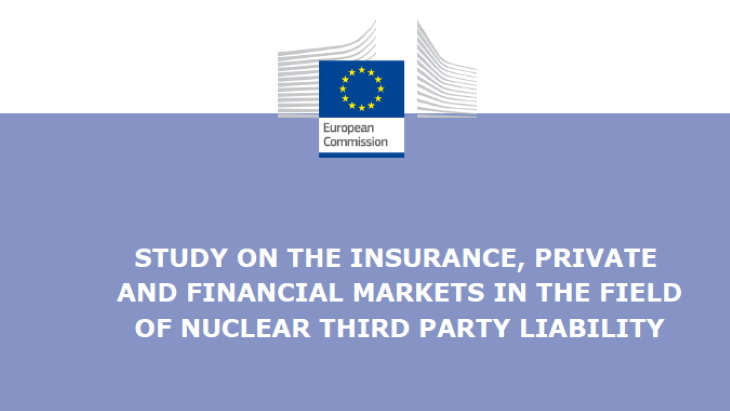Three international conventions - the Paris/Brussels Conventions, the Vienna Convention and the Convention on Supplementary Compensation - currently provide the foundations for the nuclear liability arrangements. Nuclear liability is limited in time and amount by these conventions, and by national legislation that largely follows the principles established by them. Beyond the financial security limits imposed on nuclear operators, the state can accept responsibility as an insurer of last resort.
The nuclear site operators are liable for any and all nuclear damage caused by them, regardless of fault. They are generally required to take out insurance for this nuclear third-party liability (NTPL). However, in the event of a major nuclear accident, there would be limited compensation due to the lack of adequate insurance capacity to cover the full scope of the site operators' financial security requirements. In addition, the broadening of the coverage demanded by the revised nuclear liability conventions presents traditional insurers with difficulties, as the new cover requirements appear to push at the boundaries of insurability even more.
A new study examines the state of the nuclear liability insurance market today, analyses the insurers' difficulties with the revisions to the nuclear liability conventions, and proposes new solutions to encourage the deployment of more nuclear liability capacity (including for the full scope of the liability).
The report - titled Study on the insurance, private and financial markets in the field of nuclear third party liability - was prepared by Vienna-based safety and CBRN-E security consultancy firm ENCO on behalf of the EC's Directorate-General for Energy.
It found that, between the current players in the NTPL market, there is more than enough capacity volume (or amount) for the obligatory financial security amounts demanded or proposed by the legal regimes. However, the full scope of the revised NTPL cover demanded remains unfulfilled at present. It says the risk transfer market is restrained from providing both this full scope and materially more capacity today because of the challenges of modelling and accounting for the long tail element of the revised Conventions' NTPL cover.
Materially more capacity for NTPL from insurers is available, it suggests, but only with triggers that identify the loss event and activate cover. Also required is an obligation upon operators to purchase what additional capacity is available. The study says nuclear operators are nervous that any increased financial security obligations will cost them a materially higher premium than they already pay.
The study recommends the optimal concepts based on the research and analysis conducted. The recommended concepts yielding short-term results with minimal complications are: ensuring all NTPL insurance policies have single, lifetime period limits; and, increasing the NTPL mutuals' participation with new mechanisms for reinsurance.
For the medium term, it recommends: permitting the build-up of funds to cover the Paris Convention 1st tier amount or the Vienna Convention full amount for all EU member states; creating a new catastrophe-only, EU-wide, single event, NTPL insurance cover excess of the current legal regimes; and, establishing an EU-wide protection gap entity.
"Implementation of these concepts, either individually or combined, will permit the deployment of materially greater NTPL capacity than is currently available; achieving this greater internalisation of the costs of higher financial security amounts will enhance the credibility of the nuclear industry and offer greater private market compensation for victims of a severe nuclear accident," the study concludes.
"It is important to remember that no matter what solution is adopted, some of the cost of a severe nuclear accident will inevitably fall upon the state," the report notes. "Fukushima's compensation payments to date amount to about EUR75 billion (USD91 billion). On top of this are the costs of site stabilisation and regional clean-up. These numbers are beyond the resources of most private enterprises and are even challenging for the global insurance markets.
"However, to help the nuclear sector develop a stronger social licence to operate and allow it to continue its vital contribution towards reducing global emissions, further internalisation of the cost of higher financial security must be achieved. We believe this study guides the EC towards the most appropriate mechanisms that can help achieve these outcomes at a reasonable cost to the operators and ultimately electricity consumers."





_87299.jpg)
_52351.jpg)








